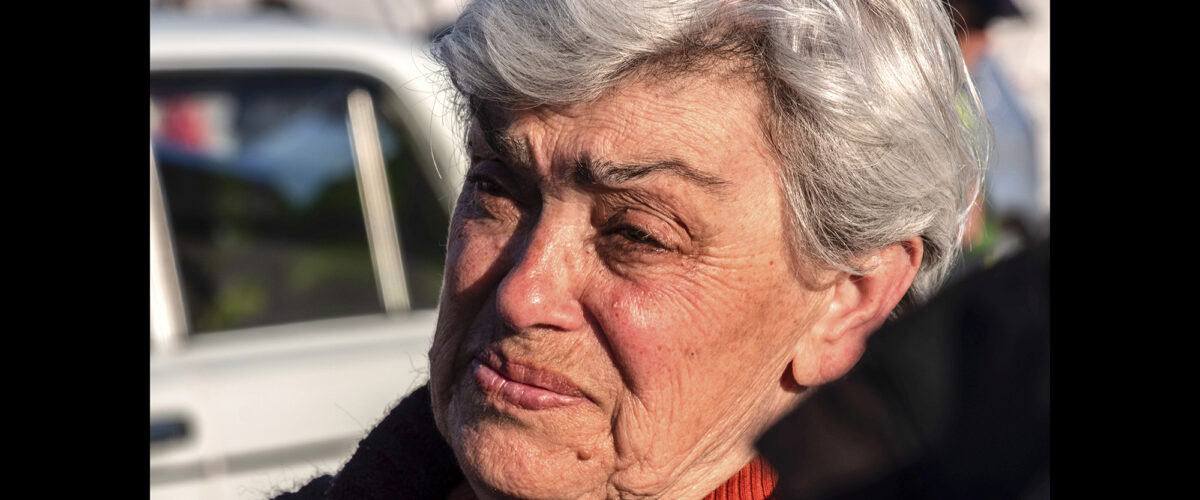Refugee and immigration activists are praising the White House for creating an expedited channel for 100,000 Ukrainian war refugees to enter the U.S., but they insist the assistance must go further and move faster.
“It’s important for our political leaders to hear that there is a responsibility we believe the government shoulders, and just as we are able to provide Ukrainian soldiers with howitzers, we should be providing the Ukrainian refugees who come to our shores with humanitarian aid,” said Lutheran Immigration and Refugee Service President Krish O’Mara Vignarajah during a recent webinar titled “Ukraine Crisis Update: Welcoming Our Ukrainian Neighbors.”

Krish O’Mara Vignarajah
The event functioned in part as a workshop for churches, civic groups, communities and individuals interested in welcoming Ukrainians and other refugees to the country, and to offer a primer on President Joe Biden’s new Uniting for Ukraine initiative, which is designed to streamline the flow of Ukrainian refugees into the U.S.
But the new federal program has significant limits, Vignarajah and other LIRS officials explained. It requires those fleeing the war first to arrange private sponsorship in the U.S. and grants them only two-year stays as humanitarian parolees, which denies them the social services and citizenship opportunities afforded those with traditional refugee status.
While humanitarian parole does allow recipients to work in the U.S., it can take six or more months to get that documentation, which would leave some refugees and their sponsors facing steep financial consequences, Vignarajah said. “It’s a really dire situation because it means those who do have access to a sponsor who can make that kind of commitment have a real opportunity, otherwise it’s going to be a severely strained situation.”
Before Uniting for Ukraine was implemented last month, one of the more popular routes into the U.S. for Ukrainian refugees was by crossing the southern border from Mexico, said Megan Bracy, director for resettlement and immigration services for LIRS.
The approximately 20,000 Ukrainians who entered the country by that route also were granted humanitarian parole. But Biden’s new program, she added, “ends the southern border route. That’s ultimately the plan, that this directed parole program will serve as the entry point.”
But there will be exceptions. According a U.S. Department of Homeland Security brief, the State Department will expand its use of the Lautenberg Amendment, which allows victims of religious persecution to enter the country as full refugees. The State Department also will intensify work with European governments to expand referrals for its traditional refugee resettlement program.

Antony Blinken
“We will help deliver on the president’s commitment to welcome 100,000 Ukrainian citizens and others forced to flee their homes in Ukraine, and our partnership with the Department of Homeland Security will help us fulfill that commitment,” Secretary of State Antony Blinken said.
But observers note the Biden administration seems to be a long way from being capable of delivering on its refugee goals.
“More than halfway through Fiscal Year 2022, we’ve only resettled 18,414 refugees total — nowhere near the refugee ceiling the administration set at 125,000. After the administration committed to resettle 100,000 Ukrainians, the U.S. resettled just 125 in April and 12 in March,” according to Ali Noorani, executive director of the National Immigration Forum.
It is good news that the U.S. accepted 14,500 applications in the first 10 days of Uniting for Ukraine and that Afghan resettlement continues, he said. “To be blunt, the administration needs to walk the talk and accelerate these processes. They are saying the right thing but painfully slow in terms of execution.”
During its webinar, LIRS recommended those interested in helping refugees should volunteer with local resettlement agencies, donate funds to help those with parole status, continue emailing and calling elected officials, pray for refugees and keep learning about the issues and challenges involved.
Vignarajah said the needs are urgent.
“Many families are arriving with nothing but the clothes on their backs and need help with everything from food and housing to navigating complicated social service systems and getting their children enrolled in school. So, this work is just beginning. And thankfully we have been overwhelmed in the best sort of way by the compassionate response of the American people to the needs of our neighbors.”
She added that the plight of refugees around the world demands that the U.S. fix its broken immigration system.
“We must meet this moment. Not only do we have the opportunity to help Ukrainians but to rebuild our refugee and immigration system. We believe that now is the time to create a system that is nimble and can withstand crises while recognizing the dignity of all people and fulfilling our moral and legal obligation to those fleeing persecution.”
Related articles:
What’s the fastest route for Ukrainian refugees to enter the U.S.? Cross the Mexico border


